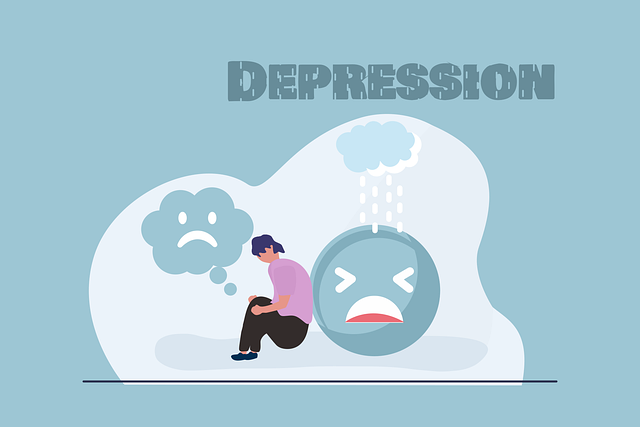Lone Tree Veterans Therapy tackles substance abuse among veterans by addressing underlying mental health challenges with a holistic, tailored approach. They emphasize early intervention through awareness, community outreach, and individual therapy. By identifying risks and promoting open communication, they encourage veterans to seek help earlier. Their unique model incorporates conflict resolution, compassion cultivation, cultural sensitivity, self-care practices, and crisis intervention to reduce risk factors, empower individuals in recovery, and build resilient support networks.
Substance abuse among veterans poses significant risks, impacting their health, well-being, and reintegration. This article delves into comprehensive risk reduction strategies, focusing on approaches that cater specifically to veterans’ unique needs. We explore critical aspects such as identifying early warning signs of substance misuse, the holistic benefits of Lone Tree Veterans Therapy, evidence-based interventions, and fostering long-term resilience through supportive networks. Understanding these strategies is pivotal in mitigating risks and promoting the well-being of our veterans.
- Understanding Substance Abuse and Its Impact on Veterans
- Identifying Risks and Early Warning Signs
- Lone Tree Veterans Therapy: A Holistic Approach to Risk Mitigation
- Evidence-Based Strategies for Effective Intervention
- Building Resilience and Long-Term Support Networks
Understanding Substance Abuse and Its Impact on Veterans

Substance abuse among veterans is a complex issue that requires tailored understanding and support. Many veterans struggle with mental health challenges, often stemming from their military service experiences, which can lead to substance misuse as a coping mechanism. This phenomenon is particularly concerning for Lone Tree Veterans Therapy, a specialized facility dedicated to addressing these unique needs. The impact of substance abuse on this demographic extends beyond individual health issues; it reflects broader societal concerns related to veteran reintegration and well-being.
Effective risk reduction strategies for veterans involve a multifaceted approach. Enhancing mental health awareness and promoting open communication strategies are vital steps in early intervention. Lone Tree Veterans Therapy can facilitate these discussions, encouraging veterans to share their experiences and seek help without stigma. Additionally, implementing community outreach program initiatives that focus on education and support networks can significantly reduce the risk of substance abuse among veterans. By combining individual therapy with community-based programs, a holistic approach to addressing this issue is achieved.
Identifying Risks and Early Warning Signs

Identifying risks and early warning signs is a crucial step in mitigating substance abuse. At Lone Tree Veterans Therapy, we recognize that recognizing these signals can be challenging, especially when dealing with underlying mental illnesses. The key lies in understanding behavioral changes and subtle shifts in emotional regulation. Friends, family, or peers might notice increased isolation, dramatic mood swings, or sudden disinterest in previously enjoyed activities—all potential red flags.
By fostering empathy building strategies and reducing the stigma associated with mental illness, individuals can be encouraged to seek help earlier. Recognizing these signs promptly allows for more effective intervention, providing individuals with the tools they need to manage their emotional well-being and prevent the progression of substance abuse.
Lone Tree Veterans Therapy: A Holistic Approach to Risk Mitigation

Lone Tree Veterans Therapy offers a unique and holistic approach to risk reduction for substance abuse, focusing on the individual’s overall well-being. This treatment model recognizes that addressing psychological and emotional issues is as vital as providing tools to manage cravings. By incorporating techniques such as conflict resolution strategies and compassion cultivation practices, the therapy fosters an environment where veterans can heal from both past traumas and current challenges.
The program also emphasizes cultural sensitivity in mental healthcare practice, ensuring that each veteran receives care tailored to their specific background and experiences. This comprehensive approach not only mitigates risks associated with substance abuse but also empowers individuals to navigate their journeys towards recovery and rebuild their lives.
Evidence-Based Strategies for Effective Intervention

Evidence-based strategies are crucial for effective intervention in substance abuse cases, offering a more tailored and successful approach to recovery. At Lone Tree Veterans Therapy, our methods focus on addressing the root causes of addiction, recognizing that each individual’s journey is unique. We employ various techniques proven to reduce risk factors associated with substance misuse, ensuring comprehensive care.
These strategies include incorporating self-care practices, as taking care of one’s physical and mental health is essential for long-term recovery. Additionally, we emphasize depression prevention and mood management, considering that many individuals turn to substances as a coping mechanism for underlying emotional struggles. By implementing these evidence-based interventions, Lone Tree Veterans Therapy aims to empower clients with the tools needed to navigate challenges, foster resilience, and achieve lasting sobriety.
Building Resilience and Long-Term Support Networks

Building resilience is a cornerstone in mitigating risks associated with substance abuse. It equips individuals with the ability to withstand challenging situations and make healthier choices. Lone Tree Veterans Therapy emphasizes inner strength development through therapeutic practices tailored to each person’s unique needs, fostering adaptability and coping mechanisms. This process involves exploring personal triggers, learning stress management techniques, and cultivating positive self-talk—all essential tools in preventing relapse.
Long-term support networks play a pivotal role in sustaining recovery. Encouraging friends and family involvement, as well as connecting individuals with peer support groups, creates a safety net that promotes accountability and provides continuous guidance. Self-care practices, such as regular exercise, adequate sleep, and healthy eating habits, further strengthen this network by enhancing overall well-being. Crisis intervention guidance is also offered to ensure individuals have access to immediate help when facing high-risk situations.
Substance abuse among veterans is a complex issue, but with comprehensive risk reduction strategies, significant improvements can be achieved. By understanding the unique challenges faced by veterans and implementing evidence-based interventions, such as those offered by Lone Tree Veterans Therapy, we can effectively identify early warning signs and mitigate risks. Building resilience and fostering strong support networks are crucial components to long-term success. Through holistic approaches like these, we can ensure better outcomes for veteran communities.














